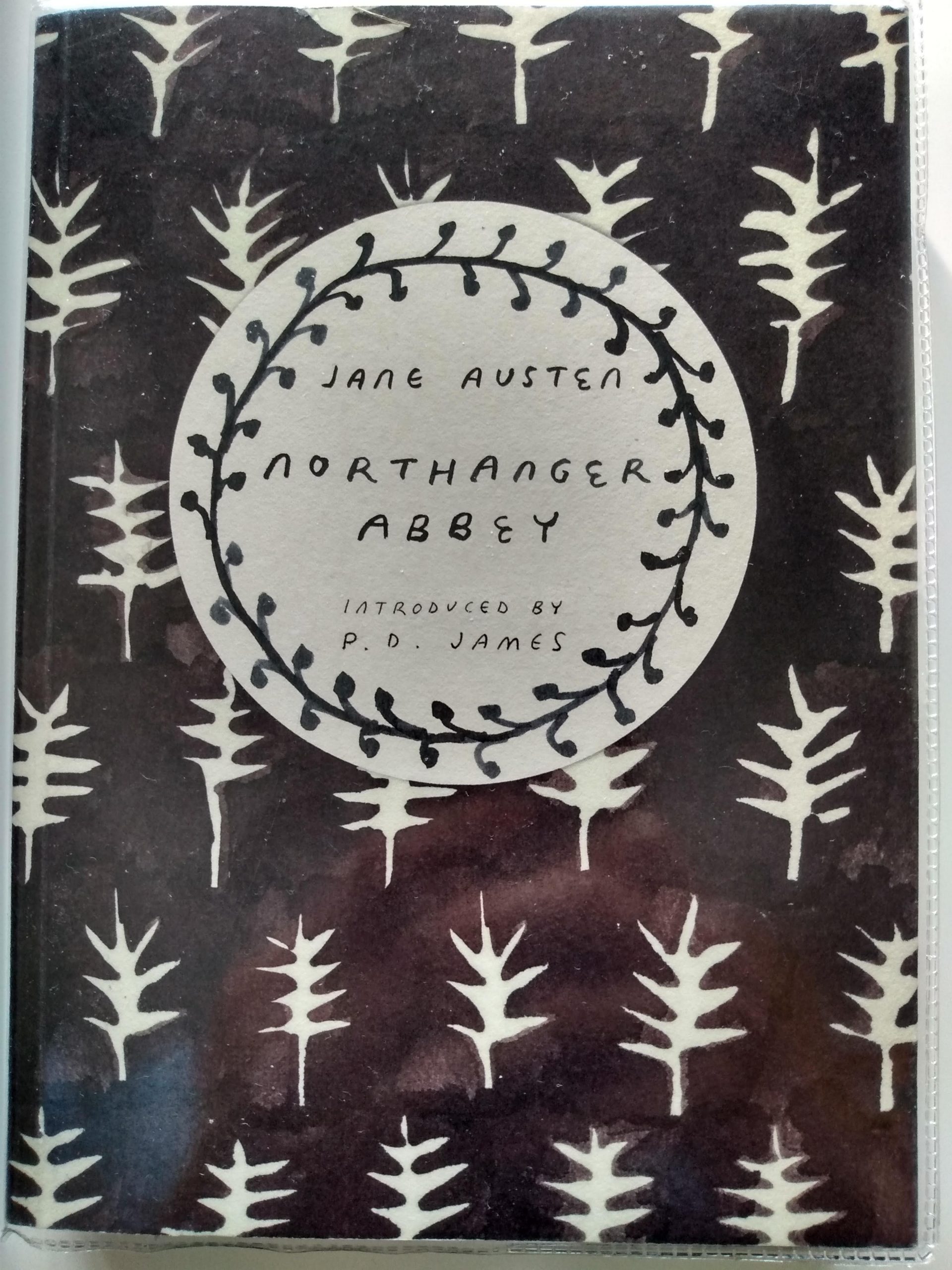Northanger Abbey, by Jane Austen
I love the world of Jane Austen's novels - which is, I suppose, a fairly accurate representation of the world Jane Austen lived in. It's a very social life: these characters are at the theatre every other night, and on the nights when they are not at the theatre they are dancing at balls, and the only deviation from this routine is when they are invited to a friend's manor house for an extended stay. Horses and carriages, dresses and hats, good old-fashioned romance - it's very feel-good reading. Part of me wishes I could step into the pages and join them all.

Northanger Abbey's heroine is a seventeen-year old girl called Catherine, who is making her debut in society in Bath. She inevitably starts falling in love, but her naivety and her passion for sensational gothic novels lead to some embarrassing and amusing situations along the way. I was struck by the focus on politeness and propriety in this novel. Most of the distress and conflict in this book arises from Catherine's fears for what people will think of her, or Catherine's entrapment by the rules (she wanted to dance with Henry, but she was socially obliged to dance with John...).
In my study of the history of the English language, I have found that the structure and atmosphere of the society of the 1800s is mirrored in the way people of the 1800s wrote.
Life in the upper classes was characterised by convention and correctness - everyone's manner was very controlled, very measured. Equally, though, reputation was everything, and although people wanted to seem sensible and restrained, they were also keen to present themselves as wealthy and sophisticated, and this was done through ostentatious clothing, expensive (and expansive!) houses and other such finery. There was always a balance between showing off your worth and maintaining a humble demeanour.
The written language of the upper classes was equally founded on rules - impeccable grammar was of great importance, and 1800s conventions like never ending a sentence with a preposition were almost always adhered to. (Somewhat ironically, I realise, I have just broken that convention by ending my sentence with the word 'to'...) There is the same sophistication to Austen's written language that the upper class might have presented in spoken conversation: the sentences are long, with many subordinate clauses; it's full of high-brow vocabulary, and I have never seen such frequent use of semi-colons in my life! Yet her writing never seems out of control. Although long, the sentences are not run-on, and the whole text has a very logical, linear structure. It's a balance of the fancy and the controlled.
Fascinatingly, the same ideals are prevalent in the music of the time. Classical music is sophisticated, ornamented, pretty, but founded on simple harmony and rigid structures. And the idea of balance underlies all Classical music - call and response melodies, repeated ideas, musical journeys that finish with a recapitulation of what they started with. There's an order to it as well as a showiness, and I love the fact that the music and the literature tie in so clearly with the social history.
Anyway, I have digressed quite seriously. Back to the book.
The plot of this novel is rather simple. This reflects both the youthful simplicity of the main character, and the aforementioned idea of linear structure. But what really makes this book so enjoyable, and drives the narrative, is Austen's use of character. The characters are so multi-faceted, so individual, and they are so well-written, with different mannerisms and ways of speaking that make for a very lovable and very entertaining cast.
Catherine herself reminds me of a somewhat understated, 19th-century Miranda. Yes, as in, the one from the sitcom. The two are based on a very similar idea - social ineptitude and an air of haplessness that is actually very endearing. Although Catherine is apparently quite an unusual heroine for Jane Austen (her female leads are usually a bit more sparky) I found her very likeable, and was absolutely positioned to sympathise with her situation.
But the other character that I really love is John Thorpe. Just to be clear, I don't actually like John Thorpe - he is an awful person - but he is a great character, and very well-constructed. Thorpe is deeply in love with Catherine, but she has no interest in him whatsoever. So desperate is John that he becomes overly obsequious and chivalrous, but his attempts at being gentlemanly cannot obscure his true character: he is a frightful exaggerator, always boasting and lying for effect, and boring Catherine half to death with his long-winded explanations of business transactions in which he inevitably made an excellent deal. It was really funny - I did actually giggle aloud at some of it - and without giving any explicit spoilers, I will just say that Austen uses the character traits of John Thorpe later on in the novel with fantastic effect.
Overall, I found this a very enjoyable read. It was just so lovely. In the same way that watching Mamma Mia raises the spirits, so reading Jane Austen whisks you away to another world. Pure escapism.
